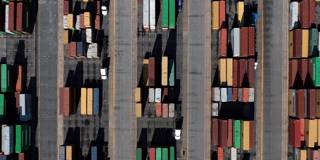Supply shortages during the COVID-19 pandemic have set off a rush to reshore or nearshore production in the name of national security and resilience. But policymakers tasked with shaping new industrial policies should have no illusions that there are shortcuts to economic development.
WASHINGTON, DC – Pandemic-induced supply shortages have heightened national security concerns in advanced economies. Worried about overdependence on Chinese manufacturing, the United States, the European Union, and Japan have each proposed initiatives to relocate production. And they are not alone. The geopoliticization of the trade-industry-security nexus is gaining momentum in the developing world as well. From the Western Balkans to Latin America, governments see a major post-COVID economic opportunity in reshoring and nearshoring production.
But such ambitions may prove too optimistic. Despite the declining prevalence of just-in-time manufacturing, Chinese exports appear to have strengthened two years into the pandemic, owing to relative supply-side resilience and a shift (perhaps temporary) in global demand from services to goods. Moreover, early indications suggest that much of Latin America, for example, has yet to outcompete China or other Asian exporters in the US market, despite the region’s potential as a site for nearshoring during COVID-19 and the reduction or even reversal of China’s labor cost advantages over Mexico and Brazil.
Reconfiguring supply chains turns out to be more complex than initially believed. Undoing three decades of international production patterns – which have particularly benefited Asia – will take more than just favorable geography, partial cost savings, or one-off political and economic incentives.

WASHINGTON, DC – Pandemic-induced supply shortages have heightened national security concerns in advanced economies. Worried about overdependence on Chinese manufacturing, the United States, the European Union, and Japan have each proposed initiatives to relocate production. And they are not alone. The geopoliticization of the trade-industry-security nexus is gaining momentum in the developing world as well. From the Western Balkans to Latin America, governments see a major post-COVID economic opportunity in reshoring and nearshoring production.
But such ambitions may prove too optimistic. Despite the declining prevalence of just-in-time manufacturing, Chinese exports appear to have strengthened two years into the pandemic, owing to relative supply-side resilience and a shift (perhaps temporary) in global demand from services to goods. Moreover, early indications suggest that much of Latin America, for example, has yet to outcompete China or other Asian exporters in the US market, despite the region’s potential as a site for nearshoring during COVID-19 and the reduction or even reversal of China’s labor cost advantages over Mexico and Brazil.
Reconfiguring supply chains turns out to be more complex than initially believed. Undoing three decades of international production patterns – which have particularly benefited Asia – will take more than just favorable geography, partial cost savings, or one-off political and economic incentives.